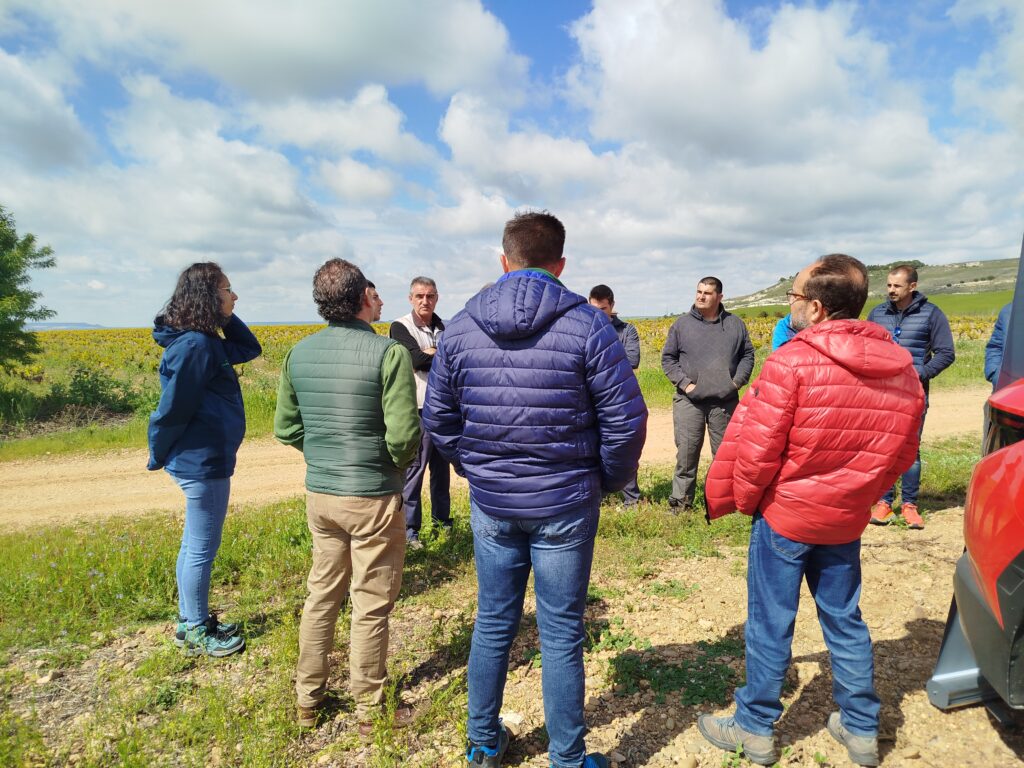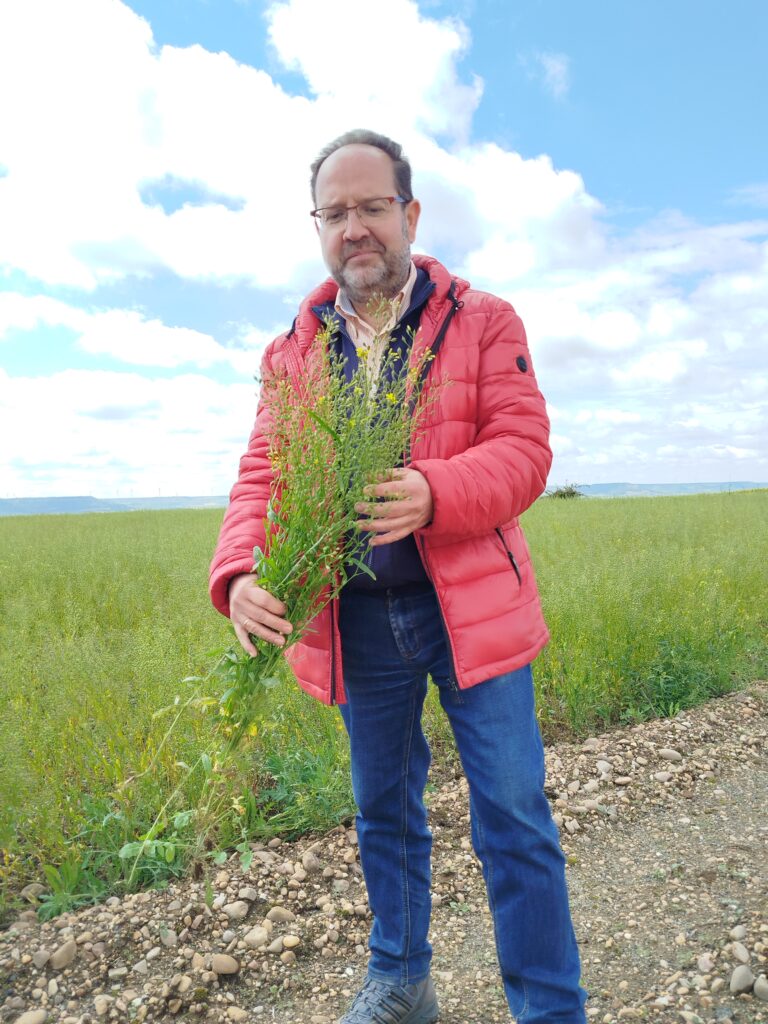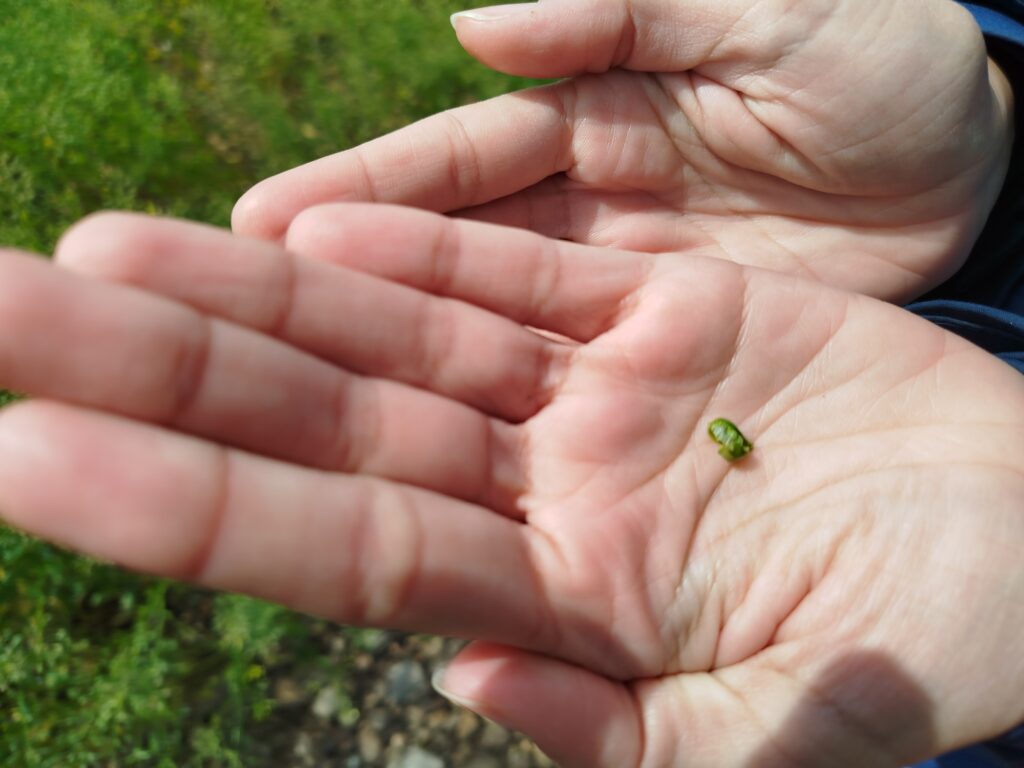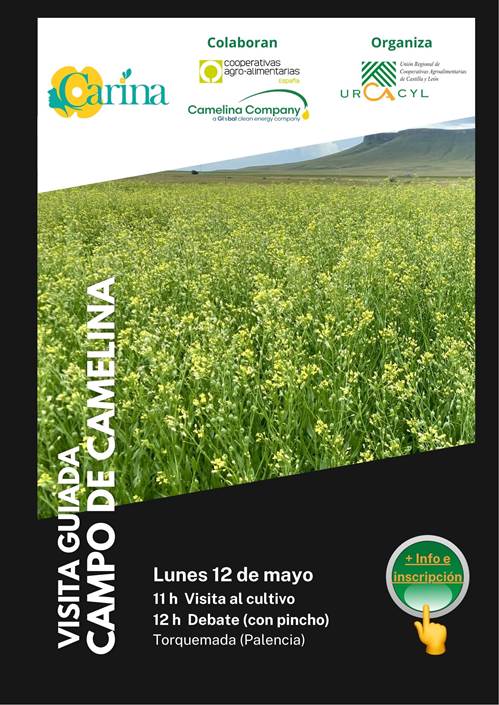As part of the CARINA Project, URCACYL, in collaboration with Camelina Company (CCE), organised a demonstration day on 12 May 2025 focused on the cultivation of camelina (Camelina sativa), an herbaceous plant species from the Brassicaceae family. The event took place in the municipality of Torquemada in Palencia, Spain.

Camelina trials are currently underway in various plots across the Castilian-Leonese region within the framework of CARINA. These trials are aimed at analysing the crop’s hardiness, adaptability, control methods, and yield performance. Recognised for its drought and frost tolerance, camelina is a low-input, short-cycle crop that produces a high oil yield, positioning it as a promising alternative for sustainable agriculture.
The demonstration day brought together 18 participants, including farmers, technicians from cooperatives such as Cobadu and Agropal, representatives from technology centres such as Itacyl, and members of Camelina Company and URCACYL. Attendees expressed strong interest in learning about camelina crop management, its allelopathic effects, and its current and potential future market value.


Camelina’s multiple applications were highlighted during the event, including oil production for biofuels, the use of its meal or cake for animal feed, and its role in the creation of various bio-products. The day concluded with an open discussion, during which participants shared experiences, challenges, and questions, leading to a productive exchange of knowledge.
To conclude the event, attendees completed an evaluation survey to collect their impressions, observations, and interests. These responses will be carefully assessed and analysed as part of the CARINA Project’s ongoing work.
Camelina continues to attract attention as a versatile and resilient crop with the potential to contribute significantly to the future of sustainable agriculture.

SUBSCRIBE TO A NEWSLETTER
Funded by the European Union. Views and opinions expressed are however those of the author(s) only and do not necessarily reflect those of the European Union or the European Research Executive Agency. Neither the European Union nor the granting authority can be held responsible for them.